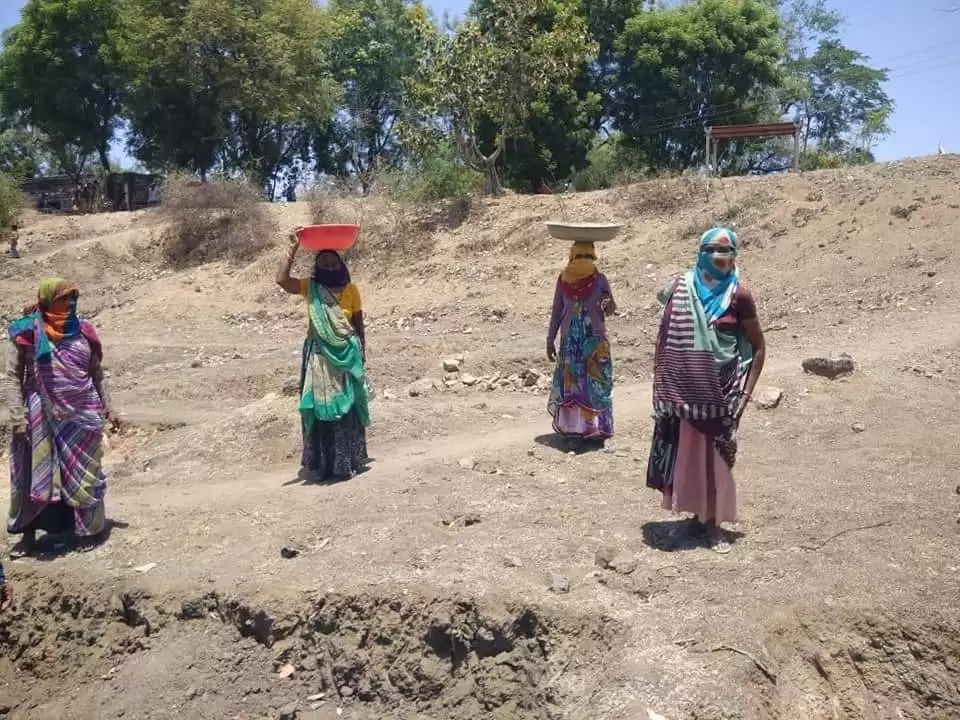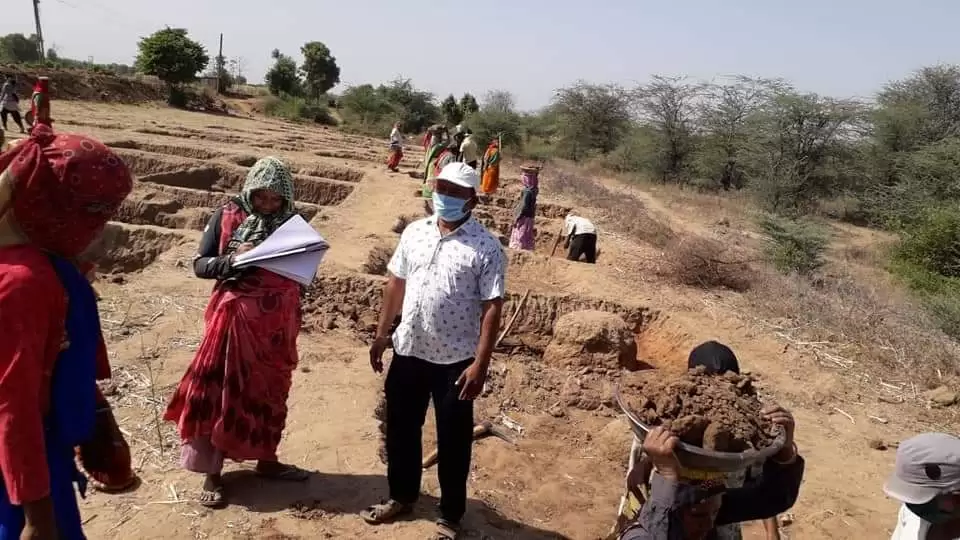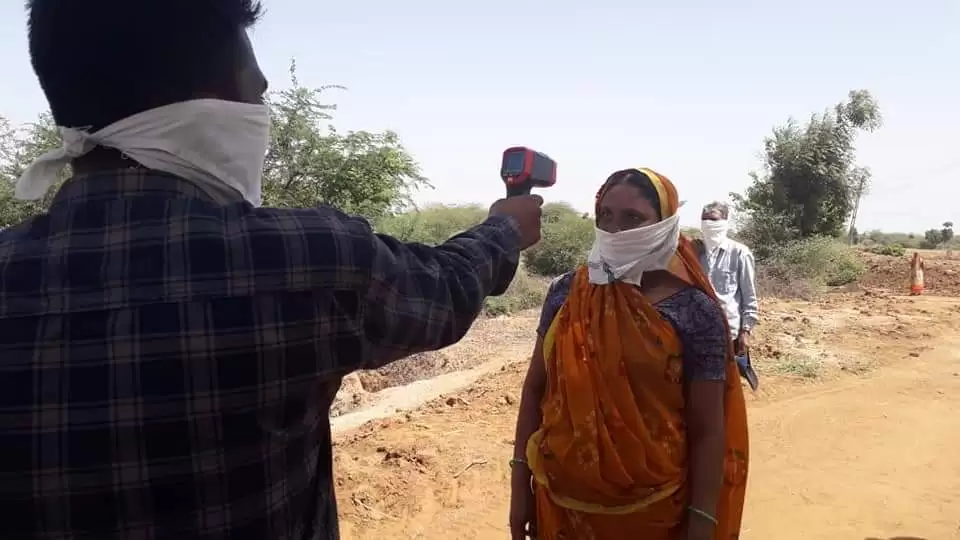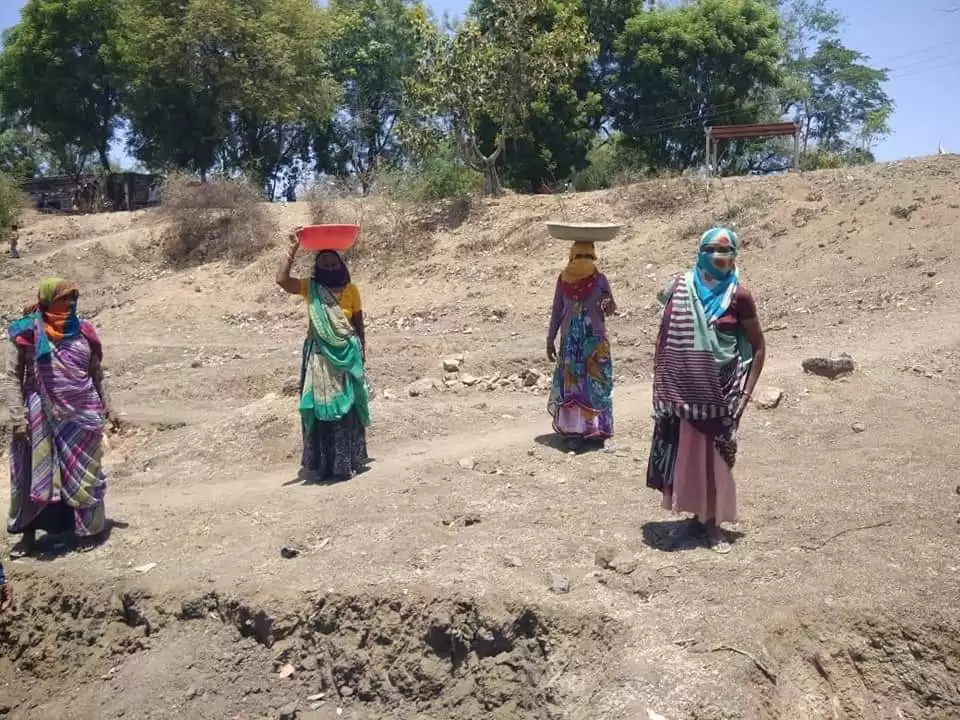India: Agricultural and rural workers look to MGNREGA to ensure livelihoods


The MGNREGA provides 100 days of paid employment on public infrastructure works for unemployed rural workers. IUF affiliates in India were involved in the research and lobbying that led to the adoption of the Act and are now arguing strongly that MGNREGA provides a safety net for the most vulnerable workers and will help rural households cope with the devastating impact of the lockdown and the COVID-19.
Since work under the MGNREGA resumed in April, following the partial lifting of lockdown measures, IUF-affiliates in the agricultural sector have been assisting their members to get work under the MGNREGA. They are also providing awareness on COVID-19 health and safety guidelines, explaining physical distancing and distributing masks to enable safe work on MGNREGA sites (shown in the accompanying photos).
In Madhya Pradesh, Gujarat, Andhra Pradesh and Bihar hundreds of workers have got work under MGNREGA. Union monitoring has confirmed an urgent need to improve entitlements under the scheme and unions are demanding:
- An increase in wages to bring them up to a living wage;
- Removal of the limitation of 100 days of work per household annually and an increase ;to 200 days;
- That any individual seeking work be provided a job or given unemployment benefits.

